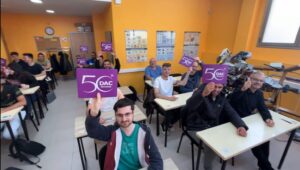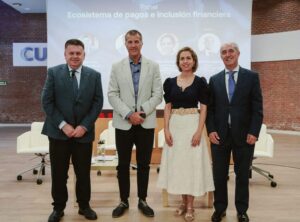Peter Godart, originally from New Jersey and born in 1992, is a prominent postdoctoral researcher and educator at the Massachusetts Institute of Technology (MIT) in the United States. His passionate research focuses on discovering new ways to mitigate and adapt to climate change, an urgent global challenge.
One of Godart’s most notable advancements is the development of an innovative system that uses aluminum scrap to generate hydrogen, a resource that can be utilized for desalinating water and producing electricity. This discovery is particularly relevant at a critical time, as aluminum is accumulating in landfills around the world due to the difficulties associated with its recycling.
Aluminum, a common metal in everyday life, can be transformed into a source of clean energy thanks to Godart’s devised system. This technological advancement is especially significant for communities devastated by natural disasters such as hurricanes, floods, and fires, whose frequencies have increased due to climate change. Godart’s system could help manage the waste generated by these catastrophic events.
Recently, Godart visited Spain to participate in the international symposium “The Future of Energy: Addressing Climate Change,” organized by the Ramón Areces Foundation. During his visit, SINC had the opportunity to interview him to learn more about his innovative system and the motivation behind his shift in professional focus.
Godart, who previously worked at NASA’s Jet Propulsion Laboratory (JPL), explained his transition from space research to technologies for mitigating and adapting to climate change. While at JPL, one of the technologies he was involved in included using aluminum as an energy carrier for robots that would explore Jupiter’s moon Europa. This experience led him to reflect on the importance of focusing on solving problems on Earth rather than other planets.
The system developed by Godart, which uses a liquid gallium-indium alloy to break the aluminum oxide layer and allow its reaction with water, has several advantages. The generated hydrogen is an excellent energy carrier and, when oxidized, only produces water, with no associated carbon emissions. Once hydrogen is produced, it can be stored efficiently and sustainably.
This technology has important practical applications in emergency situations, such as natural disasters. For example, in island communities surrounded by saltwater, the system can provide energy and clean water through desalination. Additionally, Godart has discovered how to recover the liquid metals used in the process, making it economically viable using only sodium chloride, i.e. saltwater.
While Godart’s technology has currently only been tested in laboratories, he has founded a company to manufacture these devices on a larger scale. His goal is to commercialize hydrogen and use the proceeds to develop technologies for communities affected by climate change.
Godart also considers the possibility of using other waste, such as plastics, to generate hydrogen, and emphasizes the importance of technologies that facilitate adaptation to climate change. In his vision, communities most affected by the climate crisis could benefit doubly: by solving their waste problems and by gaining an economic boost.
Regarding the future of climate change, Godart expresses concern about past lack of decisive action, but also shows hope that current advancements can mitigate negative effects. He also highlights the need to communicate science within a social and ethical context, teaching future generations to use their knowledge responsibly.
Aside from his scientific career, Godart is a jazz musician and sees a connection between creativity in science and music. During a tour in Puerto Rico, he was inspired by the aluminum waste he saw, leading to his master’s research. Godart advocates for greater cultural and artistic interaction among scientists and engineers to foster innovations beneficial to society.
This promising MIT researcher continues to explore new ways to use science for the benefit of the planet, demonstrating that creativity and ingenuity can offer viable solutions to climate and ecological challenges.
Referrer: MiMub in Spanish












